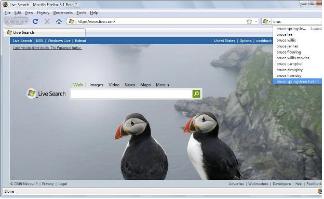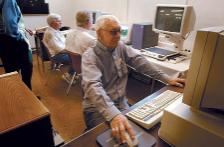
Google's rumored GDrive personal cloud service gets real description
Google's GDrive -- a rumored forthcoming service for storing personal software files on cloud-based Google servers -- looks likely to launch soon, if a reference in a file used by GooglePack is a good indication.
GDrive's "localized product category" is "online file backup and storage," according to the newly discovered description in the file. It also offers a two-line "localized short description" for the long anticipated GGDrive service, which is seen by some as ultimately eliminating the need for storing personal data on PC hard drives.

Report: 40 Gbps DWDM in 1/3 of fiber optic networks by 2013
Networking and Telecommunications researchers The Dell'Oro Group published a report yesterday forecasting the next five years for DWDM in long haul fiber optic networks that expects the market for 40 Gbps wavelengths to grow by 50% every year. Short for Dense Wavelength Division Multiplexing, DWDM is an optical technology used to fit more traffic (thus making it "dense" with signals) on existing fiber optic backbones.
This week, General Cable Corp and Fujitsu won their bid for a 1,000 mile long haul submarine fiber optic cable project connecting the Indonesian islands of Kalimantan and Sulawesi. That project is scheduled for completion in mid-2010.

NEC to cut workforce by 20,000
This Morning, Japanese electronics company NEC posted its third quarter earnings, showing a ¥124.8 billion drop year-over-year. Part of the cost-cutting measures the company announced today included workforce reductions to its chip, component, and LCD divisions, which will total 20,000 employees. 60% of these layoffs will take place outside of Japan, and the majority of those cut will be full-time employees. All cuts are expected to be completed before March 2010.

Report: Dell smartphones draw near
Like Acer, number two computer company Dell is expected to unveil its long-rumored smartphone products at GSMA in Barcelona on February 16. According to Wall Street Journal reports, Dell has been working for over a year on Android and Windows Mobile devices and will have prototypes to show off at the convention, one of which is a touchphone, the other a slider of some sort. Details remain scant, but when Dell enters the smartphone business it will mean all of the US top five computer manufacturers will be represented in the mobile handset sector.

Microsoft releases Live Search add-in for Firefox
Microsoft reps call it an illustration of the company's efforts for increasing platform interoperability, but you could also say it's another sign that the company's entirely serious about making headway in the search wars: Ladies and gentlemen, a Live Search browser add-in... for Firefox.
As per the image shamelessly hijacked above from the Port 25 blog, it's pretty simple stuff, enabling query suggestions in a small search box at the upper right of the browser window. It's more eyecatching behind the scenes, where (as lead program manager Alessandro Catorcini points out) the 2.0 version of the Live Search API supports multiple protocols (JSON, XML, SOAP), as opposed to Google's AJAX-only search API. Developers will recognize the project as being in the wheelhouse of Project Silk Road.

Age nothing but a number (mostly) online
A study just out from the Pew Internet & American Life Project indicates that whatever your grumpy grandparent or eye-rolling teen claims, the Internet is for everybody, young and old.
In fact, some functions -- and not just the ones you'd expect -- aren't remotely the province of only the Young And Free-Time Blessed. The survey found that Generation Y (born 1977-1990) and teens are the biggest users of blogging, social networking, and instant messaging. And older users seek information and use email more frequently. But Gen Y and the GI Generation (born before 1937) seek out health information at almost exactly the same rate online -- 68% versus 67%. 31% of both the 12-17 crowd and Gen X (born 1965-1976) download videos. And there's barely five percentage points of difference between the crowd least likely to make travel reservations online (the GI Generation and Gen Y, tied at 65%) and the generation most likely (Gen X, 70%).

NASA puts out the call for low-gravity tech
On NASA's annual Day of Remembrance for the astronauts (and cosmonauts) who died in the effort to conquer space, the space agency put forth a call to action that might interest even earthbound geeks. They're looking for tech projects in need of testing in near-weightless conditions.
The FAST (Facilitated Access to the Space Environment for Technology Development and Training) program is seeking tech projects to take up in high-flying parabolic aircraft. It's a public-private collaboration -- the planes are owned and flown by outfits such as the Zero Gravity Corporation, and managed by the Johnson Space Center's Reduced Gravity Office. (We now pause while you enjoy the mental image the name engenders.)

Amazon rapidly reports good results for Q4
Short and mostly sweet: Amazon execs blasted through their earnings call on Thursday in just under 45 minutes. But the results themselves were worth lingering over: a best-ever holiday season, kindling joy in analysts' hearts.
Wall Street expected good things from the Seattle e-commerce firm, to the tune of returns of 39 cents per share. The company came back with 52 cents/share, on a profit of $225 million. Net sales revenue during the crucial holiday season was up 18% year-over-year to $6.7 billion; $3.64 billion of that was Amazon's traditional "square-box" fare of books, DVDs, and CDs, which were up 9%. The jump in less traditional Amazon products such as clothing and electronics was even more impressive, up 31% to $2.89 billion.

Copyright Board begrudgingly adopts revenue-based streaming royalties
With explanatory language that made it clear its judges didn't particularly favor anyone at all involved in this whole process, the CRB announced this week it will apply royalties to streaming net services based on revenue.
Though the royalty schemes themselves may not be exactly what streaming broadcasters asked for, especially with regard to its phraseology and methodology -- which makes corporate tax law look like an episode of "Sesame Street" by comparison -- the US Copyright Royalty Board published in its weekly news bulletin (dated Monday but released today) its revenue-based royalties schedules for online services that provide streaming music, online music stores that provide downloads, and ringtone services.

25 things you didn't know about Sony's earnings report
As Facebook groans under a blizzard of forwards for the latest "25 Things You Didn't Know About Me" meme, a savvy observer suspects that we're all doing that project to keep our minds off the economy.
And based on photo evidence and the hideous 94.8% drop in net income, no one today needs a little mental break more than Sony. And so...

Hollywood studios join the streaming media parade
Studio 3 Networks, a joint venture of three major production groups, revealed today that Epix -- the name for which it had filed multiple trademark applications in early December, will be a streaming on demand Web service.
Originally thought to be a premium television channel and companion on demand service, Studio 3 president Mark Greenberg said yesterday that it will actually be the other way around: a Web service with a cable channel planned for the future. Studio 3 is a joint venture of Viacom and Paramount Pictures, MGM Studios and United Artists, and Lionsgate Films.

Google manager to lead 'Citizen Participation' under Obama
According to reports, President Obama has selected Google (and former Yahoo) group product manager Katie Jacobs Stanton as the country's first "Director of Citizen Participation."
Citizen Participation has been a key phrase in Obama's technological policy vernacular since the start of his campaign. From campaign literature: "Barack Obama will use the most current technological tools available to make government less beholden to special interest groups and lobbyists and promote citizen participation in government decision-making."

Digital road sign hacked to read, 'Zombies Ahead'
[Photo credit: i-hacked.com]
PCs get compromised sometimes, and mobile phones, too. But now, in Texas, transportation officials are confirming an exploit against a different type of "device." Instead of proclaiming something like, "Road Closure," a digital sign in Austin was temporarily changed last week to say, "Zombies Ahead."

Senator wants stimulus bill to include Internet predator tracking
It isn't the same measure as US Rep. Peter King's controversial camera phone bill, but Sen. Barbara Mikulski has now proposed other legislation also aimed at using technology to help thwart sexual predators. Specifically, Mikulski has added $50 million to the Economic Stimulus bill for "Internet Crimes Against Children (ICAC) initiatives.
The senator's plan calls for using federal investigators to "follow the trail of child pornography traffic back through the Internet to rescue children." Meanwhile, Grier Weeks, executive director of the National Association to Protect Children (NAPC) -- a group that supports the proposal -- is referring to child rescue as an "economic stimulus" activity. "Law enforcement jobs are as important as bridge builders' jobs," he said in a statement today.

Apple hints of an 'iPhone2.1'
Although details are evidently still non-existent, Apple has intimated that the next generation of its iPhone smartphone might be known as the iPhone 2.1
A look inside the Apple's iPhone 2.x Firmware has shown developers a clear reference to a hardware model dubbed the "iPhone2.1." The same iPhone 2.x Firmware also describes Apple's original iPhone as the "iPhone1.1" and the current iPhone 3G as the "iPhone1.2."



